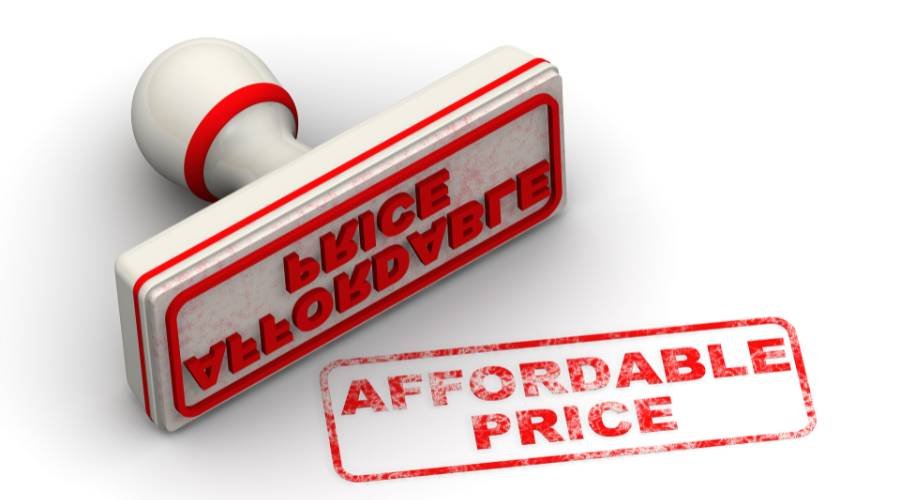Did you know businesses that go green can save up to 60%? This shows how big of a difference sustainability can make for a company’s success. It’s especially true in Australia’s fast-changing business world.
At the core of sustainable business is a balance between caring for the planet, engaging with society, and staying financially strong. By adopting this approach, Australian leaders can achieve success and make a positive difference in the world.
Key Takeaways
- Sustainable business practices can lead to significant cost savings and increased profitability.
- Consumers are drawn to brands that align with their values, enhancing brand reputation and customer loyalty.
- Employee engagement and satisfaction are higher in companies prioritizing social and environmental responsibility.
- Embracing the circular economy principles can minimize waste and create new economic opportunities.
- Sustainable supply chain collaborations can help create eco-friendly business ecosystems.
By implementing sustainable business practices, we can thrive in the digital world. This approach, tailored for Australian businesses, opens up new opportunities for success.

Introduction to Sustainable Business Strategies
Sustainability has grown from just a dream to a key part of business planning. It helps us cut down on environmental harm, boost our image, and draw in customers who care about the planet. By going green, we work better, build stronger brands, and keep our teams happy.
The Importance of Sustainability in Business Strategies
Corporate social responsibility (CSR) is now a big deal. It means businesses aim to help society and the planet as much as they make money. Making products that are kinder to the earth can give us an edge. Plus, looking at our supply chain can show us how to be more eco-friendly.
Benefits of Adopting Sustainable Practices
- Enhancing brand reputation and customer loyalty
- Improving operational efficiency and reducing costs
- Increasing employee engagement and job satisfaction
- Aligning with the growing demand for sustainable products and services
- Contributing to the overall sustainability of the community and environment
Going green is good for everyone. It helps our business grow while making the world a better place. By choosing sustainability, we’re setting ourselves up for success and a brighter future.
Understanding the Circular Economy Concept
The circular economy is a new way of thinking about how we use resources. It moves away from the old “take, make, dispose” model. Businesses can now use resources more wisely, create less waste, and find new ways to make money.
At the core of this system is the idea of keeping things in use for as long as possible. This means making products that last, can be fixed, and can be recycled.
Product design is key in the circular economy. It’s about making things that can be used over and over again. This includes making products that can be fixed and recycled.
Another important part is closed-loop production. This means using waste as a resource in making new products. It’s a big step towards reducing waste and using resources more efficiently.
Sharing and leasing goods is also a big part of the circular economy. It helps use resources better and saves money. It’s a way to share instead of owning everything.
Switching to a circular economy helps solve big problems like climate change and resource scarcity. It’s a way to grow the economy without using up all the resources we have.
| Circular Economy Principles | Benefits |
|---|---|
|
|
Switching to a circular economy is a big chance for everyone. It’s a way to make the world better for business, people, and the planet. By trying new things, we can make a future where everyone wins.
Environmental Sustainability in Business
As the world worries more about the environment, businesses need to act. They can use energy-saving tech, start recycling programs, and check their environmental impact. Also, using green building standards like LEED can save money and make workplaces better.
Reducing Environmental Footprint
Businesses should work hard to lessen their environmental harm. This means:
- Buying energy-saving tech, like LED lights and efficient HVAC systems, to use less energy.
- Starting big recycling and waste reduction plans to cut down on trash and support a closed-loop system.
- Doing regular environmental checks to find ways to get better and see how they’re doing.
Green Building Standards
Using green building standards, like LEED, can make a business more eco-friendly. This helps in many ways:
- Lowering costs by using less energy and water.
- Making workplaces better for health and productivity.
- Improving the company’s image and attracting green-minded customers and partners.
Going green is good for the planet and can give a business an edge. By focusing on being eco-friendly, Australian businesses can help the planet and succeed in the long run.
| Characteristic | Description |
|---|---|
| Operates in a sustainable manner | Minimizes environmental damage and utilizes renewable resources where feasible. |
| Focuses on responsible supply chains | Works with environmentally conscientious suppliers and sources materials locally to reduce carbon footprint. |
| Aims to eradicate or minimize negative environmental impacts | Considers the environmental effects of products and services, and manages stock production and limits excessive packaging to reduce waste. |
Social Responsibility and Community Engagement
We believe that social responsibility and community engagement are key to success. They help us contribute to the greater good and benefit our business and employees.
Employee Well-being and Development
Our employees are the heart of our organization. We focus on their well-being and career growth. Our programs and competitive packages keep them motivated and satisfied.
Community Outreach and Involvement
We are deeply involved in our local community. We host events, support causes, and work with schools and nonprofits. This helps us understand community needs and make better decisions.
By focusing on social responsibility and community engagement, our reputation and customer loyalty have grown. Our employees are empowered, and our partnerships have increased our trust in the community. We’re committed to sustainable growth and making a difference.
| Metric | Percentage Increase |
|---|---|
| Positive Reputation | 20% |
| Informed Decision-making | 15% |
| Skilled Local Workforce | 18% |
| Conflict Prevention | 22% |
| Sustainable Growth | 12% |
| Positive Environmental and Social Impacts | 25% |
“Investing in social responsibility and community engagement is not only the right thing to do, but it also makes sound business sense. It’s a win-win for our organization and the communities we serve.”
We’re confident in our ability to grow sustainably while positively impacting those around us.
Financial Sustainability and Long-Term Viability
For a business to thrive, financial sustainability is key. Investing in technological innovation helps streamline processes and cut costs. The right digital tools can give us a competitive edge and ensure long-term profits.

Investing in Technology
Businesses can use government grants or partnerships to fund tech upgrades. These options can reduce the initial costs and speed up the transition to a more efficient operation. By adopting technological innovation, we boost our financial health and prepare for the future.
Diversifying Revenue Streams
Another vital strategy is to diversify revenue. By offering new products or services, we can reduce financial risks. This approach helps us stay stable during economic changes and adapt to market shifts, ensuring long-term success.
| Sustainable Practices | Financial Benefits |
|---|---|
| Embracing energy-efficient technologies | Substantial cost savings and environmental benefits |
| Adopting green building standards | Lowered operational costs and healthier work environments |
| Prioritizing employee well-being and development | Enhanced staff retention, job satisfaction, and work quality |
| Engaging with the local community | Improved corporate reputation and image |
| Diversifying revenue streams | Reduced financial vulnerability and long-term sustainability |
“Sustainable businesses generally have higher employee engagement, retention, and productivity, which can lower recruitment costs and boost profitability.”
By investing in technology and diversifying revenue, we build a strong financial base. This approach helps us face business changes with confidence and resilience. It drives our organization’s sustained growth and success.
Sustainable Business Practices
In today’s fast-changing business world, adopting sustainable practices is crucial. It’s not just a trend; it’s a must. Sustainable practices mean being good to the environment, engaging with society, being financially strong, and being ready for disasters. By doing this, businesses can lower risks and encourage new ideas.
Studies show how important sustainability is becoming. For example, $142 billion was invested in sustainable funds globally in the last quarter of 2021, a 12% jump from Q3. Also, two-thirds of investors look at ESG factors when deciding to invest, according to EY’s Global Private Equity Survey. This shows that sustainability is key for lasting business success.
Sustainable business practices can be many things, like:
- Sourcing and using sustainable materials
- Improving energy management efficiency
- Reducing greenhouse gas emissions
- Creating efficient supply chains
- Enabling sustainable development
- Supporting sustainable charities or education funds
By adopting sustainable business practices, companies can lessen their environmental impact. They also gain many benefits, such as more sales, profits, and investor support. Plus, they keep customers happy, retain good employees, and save money.
As we move towards a greener future, with the United Nations aiming for Net Zero by 2050, businesses focusing on sustainable strategies will do well. By showing they care about the planet, companies build trust and loyalty with their customers. Customers today want to know the environmental and social impact of what they buy.
Resilience and Disaster Preparedness
In today’s world, business resilience and disaster preparedness are key. We know that having a solid plan is crucial to protect our businesses and employees. This means having backup systems, managing our supply chains well, and training our staff to handle emergencies.
Being resilient shows our commitment to our operations and builds trust with our stakeholders. Regular drills and training help our team get ready for emergencies. In fact, for every dollar we spend on disaster preparedness, we can save up to $8 later.
But, many small businesses still don’t have a disaster plan. This is worrying, as we face around 560 disasters a year by 2030. Climate change and cyber-attacks are big threats.
“Resilience is commonly described as the ability of a community to ‘bounce back’ after a disaster, underlining the importance of building resilience at a community level.”
We’ve teamed up with EarthCheck and the Queensland Tourism Industry Council to offer a disaster resilience course. This online program, backed by the Queensland Government, helps businesses of all sizes stay safe and recover well after disasters.
- Identify risks and implement risk reduction strategies
- Build a disaster management team and plan for disasters
- Recover business activities efficiently and “build back better”
By focusing on crisis management and disaster preparedness, we protect our businesses and communities. This ensures we’re ready for whatever the future brings.
| Key Statistic | Insight |
|---|---|
| Only 3% of disaster funding is spent on mitigation, preparedness, and resilience efforts | The vast majority of disaster funding is allocated for recovery and clean-up, underscoring the need for increased investment in proactive resilience strategies. |
| For every dollar spent on disaster preparedness, businesses can save up to $8 in recovery efforts | Investing in comprehensive disaster preparedness plans can significantly reduce the financial burden and disruption caused by emergency situations. |
| More than half of small businesses have not prepared for disasters | Despite the clear benefits, many small businesses remain vulnerable to the impact of disasters, highlighting the importance of accessible disaster resilience training and resources. |
Government Support for Sustainable Business Strategies
In Australia, businesses are getting help from the government to be more sustainable. Governments everywhere see how important it is to protect the environment. They give out money, grants, and tax breaks to encourage businesses to go green.
The government also makes rules to make sure businesses follow environmental and social standards. This helps everyone play by the same rules. By following these rules, Australian businesses can get help from the government.
- Businesses can stand out by focusing on sustainability, making them different from others.
- To avoid making false claims, businesses need to back up their green promises with facts.
- Claims about being sustainable should be true and cover the environment, culture, and community.
- Being open about plans to be more sustainable and keeping those promises is key.
The government also helps businesses share knowledge and work together. This teamwork leads to new, green ideas. By joining these efforts, Australian businesses can do more to protect the planet.
| Program | Description | Benefits |
|---|---|---|
| Business Sustainability Assessment | Available for eligible businesses at a subsidised cost of $500 (ex GST). | Helps identify current sustainability practices and develop actions for reducing carbon emissions and analyzing the return on investment. |
| Sustainability Workshops | Offered across South Australia for small and family businesses. | Aim to provide an increased understanding of addressing environmental sustainability issues. |
| 1-1 Consultation | Available for businesses looking to take the next step in sustainability. | Helps identify the current sustainability practices of the business and the next steps to improve. |
By using government support, Australian businesses can improve their green efforts. They can also get ahead of the competition and help make Australia a greener place.
Collaborating with Non-Governmental Organizations (NGOs)
Working with non-governmental organizations (NGOs) is a smart move for companies wanting to go green. NGOs know a lot about the environment and social issues. They help businesses find ways to be more sustainable.
When companies team up with NGOs, they get access to lots of resources and knowledge. This helps them make and carry out green plans. These partnerships also make sure everyone’s needs are considered.
The R4 Rural Resilience Initiative is a great example. It was started by Swiss Re and Oxfam. By 2019, it had helped over 87,000 farmers, touching the lives of about 450,000 people in six countries. The program gave out around $1.5 million to farmers who lost things due to bad weather.
Partnerships like the one between Swiss Re and Oxfam show how working together can solve big problems. They help with things like education, healthcare, and getting help during the COVID-19 pandemic.
It’s easier to make a business green when it’s still growing. Working with government and NGOs helps build green practices into a company’s DNA. Together, they can handle big sustainability challenges that one group can’t solve alone.
Good partnerships need clear goals, trust, diversity, open communication, and new ideas. By using these strategies, companies can use NGOs’ knowledge and networks to achieve lasting success and sustainability.
Conclusion
Using sustainable business strategies is now essential for lasting success. Australian companies can lessen their environmental footprint and boost their reputation. They also attract customers who care about the planet and encourage new ideas.
Key ideas like the circular economy and green supply chains are vital. They help businesses grow in a sustainable way.
Companies like Tesco and The Body Shop show how it works. Tesco saved a lot by using energy wisely and improving its logistics. The Body Shop gained loyal customers by focusing on the environment.
Google is a top choice for many because of its green efforts. Unilever’s dedication to sustainability has made its brand stronger worldwide.
Working together with governments and NGOs, Australian businesses can face challenges head-on. The future of sustainable business looks bright. Companies that choose sustainability will not only do well but also help make the world better.
FAQ
What is the importance of sustainability in business strategies?
Sustainability is now a key part of business planning. It helps companies cut down on environmental harm, improve their image, and draw in customers who care about the planet.
What are the benefits of adopting sustainable practices?
Going green makes businesses run better, boosts their reputation, and keeps customers happy. It also makes employees feel good about working there.
What is the circular economy concept, and how can businesses adopt it?
The circular economy is a new way of doing business. It’s about using resources over and over again, not just once and then throwing them away. Companies can use this approach to use fewer resources, make less waste, and find new ways to make money.
How can businesses reduce their environmental impact?
Companies need to make a conscious effort to lessen their environmental harm. They can do this by using less energy, recycling more, and checking their environmental impact. This helps them use resources better and cut down on pollution.
What are the key aspects of social responsibility and community engagement for businesses?
Taking care of employees makes them happier and more loyal. Companies can also help their communities by hosting events, supporting local causes, and working with schools or charities. This improves their image and makes a real difference.
How can businesses ensure long-term financial sustainability?
Using the latest technology can make businesses more efficient and save money. They can also make more money by offering new products or services, entering new markets, or finding special niches. This keeps them financially stable for the future.
Why is disaster preparedness an essential aspect of sustainable business practices?
Businesses need solid plans to protect themselves and their workers in emergencies. This includes having backup systems, managing supplies well, and training staff to handle crises.
How can governments support businesses in adopting sustainable strategies?
Governments are now big supporters of sustainable business practices. They offer money, tax breaks, and help businesses share knowledge and work together. This encourages companies to go green.
What are the benefits of collaborating with non-governmental organizations (NGOs) on sustainability initiatives?
Working with NGOs gives businesses access to resources and expertise. NGOs can also help connect businesses with communities, making sure everyone’s needs are heard.




